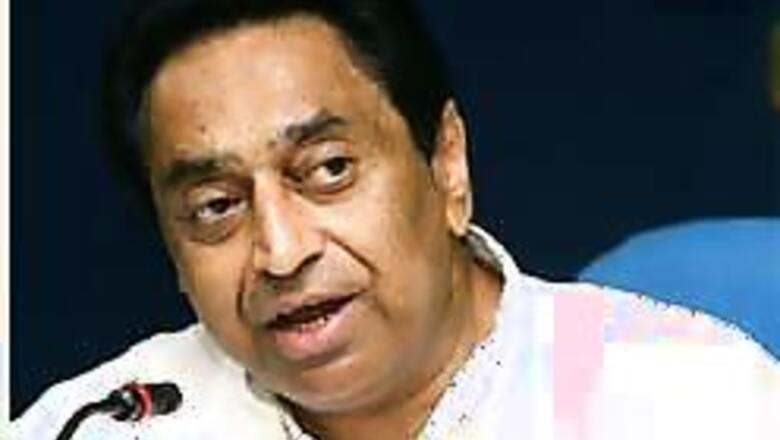
views
Berlin: The Indian government hopes its coalition allies will support much of its planned economic reform legislation, Trade Minister Kamal Nath said in an interview with a German newspaper published on Monday.
Nath told the Handelsblatt daily the government was working on 32 reform laws, 21 of them in the area of economy and finance.
"We hope, with the help of our coalition partners, to get many of them through parliament," Nath said, citing one proposal to raise the limit on foreign stakes in insurance firms to 49 per cent from 26 per cent.
"But reforms are only possible in steps," he added. "We must calm people's fears of the unknown."
A month-long session of the Lok Sabha starting in mid-October is likely to be the last before general elections due by next May.
Nath said the government was planning eventually to allow more foreign investment in the retail sector but had to make sure small businesses were not at an unfair disadvantage.
"Sooner or later we will open up further segments of the retail sector, hopefully also supermarkets," Nath said.
"But I cannot specify any timetable. Small retailers run 15 million shops and employ 21 million Indians. We have to give them a chance to prepare themselves for more competition."
Nath said a slowdown in the Indian economy would not last longer than a year because domestic demand was underpinning expansion.
"Due to the turbulence in the global economy, growth will slow in 2008 to 7-8 per cent from more than 9 per cent the previous year, but no lower," he said.
"However, the economic policy balance between keeping inflation in check and defending growth momentum is really very difficult," he added.
Nath said there was still a chance to reanimate the World Trade Organisation's Doha round of negotiations, which collapsed in July, but industrialised nations should accept the main aim was to reduce poverty in emerging countries.
"Doha must correct the structural failings of the global trade system, not cement them," he said.
"Massive subsidies are distorting trade, especially in agricultural goods. That is unjust. Our farmers can compete with America's farmers but not with the U.S. public-sector budget."
Asked whether India would be forced to compromise on tariffs, Nath said the government had to maintain some restrictions so that investors were forced to build factories and create jobs in India instead of importing.
"And start-up industries with huge potential such as auto parts need protection in the early stages," he said.
"In addition, our competitors not only come from the West now but increasingly from East Asia."

















Comments
0 comment